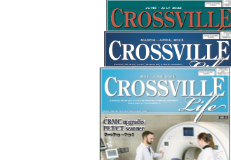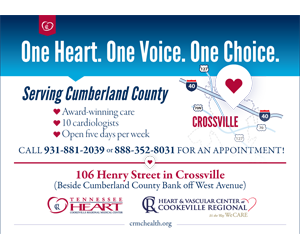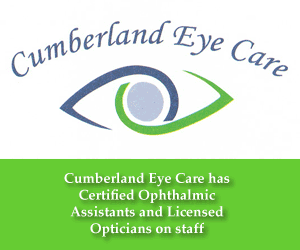The Crisis in the Caribbean: A Trip Gone Bad, But Always Surrounded by Caring People
EDITOR’S NOTE: I am using a story by Sharron Eckert in place of my regular column in this issue. Sharon is a regular contributor to the magazine, normally writing about the arts community. This story is about a medical crisis that began on a cruise ship in Mexico. I felt like her story was so good, it deserved a higher priority. — Donald E. Napier, Publisher
By Sharron Eckhert
My husband Tom used to say that a cruise was one of his favorite vacations, so when friends asked us to join them for a Caribbean cruise in early February, we were quick to sign on. Half a day on the ship was delightful; the rest of the trip was horrific. But throughout the entire experience, I felt surrounded by caring people, some we knew, some we were yet to meet and some working behind the scenes.
Ship Sick Bay: On Sunday morning February 1, Tom experienced difficulty breathing and went to the ship’s sick bay where the medical staff reported that his heart rate was racing at 166 and one time reached 181. During that entire day and overnight, Tom did not respond positively to medications: his heart rate was not reduced significantly and he impulsively pulled at every IV line and cord. An appropriate description for this behavior is “combative.” Friends literally had to sit on him to hold his arms down and keep his legs on the bed. “Surrounded-by-Care”experiences began as the ship’s medical team spent much time and energy with irritated and frustrated Tom. Friends Marda, Jim, Jo and Richard took over the night shift so that I could pack suitcases and ship staff made arrangements for our departure from the ship.
Cozumel Mexico
The next morning, docked at Cozumel, we were evacuated by ambulance, passing other tourists leaving for their daily excursions. Our expectation at that time was that Tom would be stabilized at the local island hospital, then transported to a Miami hospital. The reality was that Tom spent Monday in a curtained emergency cubicle while staff performed multiple tests, a heart catheterization and ventilator insertion. A caring staff person found a small stool for me to sit on in the hallway throughout the day, guarding our only possessions: a backpack with a set of clothing for Tom, a small overnight case for me, Tom’s CPAP machine and a small purse and notebook in a purple cloth bag. Kind, Spanish-speaking people surrounded me: a security guard at the hospital entrance, staff who arranged for a hotel which was a $5 taxi trip from the hospital, a receptionist who offered a phone to call the USA, and medical staff. Admittedly, I was concerned when the finance officer (one of the few staff I encountered who could speak English) took all of my ID and credit card info but who then disappeared for over an hour. The head physician, Dr. Moguel Anchiata, who also spoke English quite well, regularly used the words “very sick” but said that he would be happy to talk with our cardiologist back in the States.
The Longest Week
What we thought would be a short time turned into a week in the small intensive care dorm-like room with several beds separated by curtains. Dr. Oscar Reyes, Intensive Care Physician, described Tom’s status: Pulmonary Embolism, fluid retention, labored breathing, high blood toxins, very weak heart. It was determined that Tom was not stable enough for flight but that time would provide more information. Tom instinctively continued to pull out every IV line, even those that were taped securely. On Tuesday the ventilator was removed and exchanged for an oxygen mask but Tom could not swallow and could barely move his lips in an effort to speak. By Wednesday, Tom had pulled out the main catheter line. More medications were given to try to calm him and Tom’s arms were restrained with gauze tied to the bed. That evening, Dr Moguel said that Tom needed an Implanted Cardioverter Defibillator (ICD) “not to improve Tom’s condition but to reduce the chance of sudden death” and that he had tried to contact our supplementary insurance to get pre-authorization (Medicare does not handle expenses in Mexico). The next morning I called several Blue Cross Blue Shield departments, talking with numerous representatives. I was told there would probably not be a benefit paid, but that no preauthorization was required. I reported my findings to Dr. Moguel who said the ICD had to be sent from Mexico City. More waiting!
In an effort to find additional veins, an IV line was inserted at Tom’s elbow, which meant that no bending should occur at that site. That was impossible because of his continual movement and goal of pulling lines out. I asked for a splint or a board but the only solution was a couple of cardboard pieces. My pantomime of equipment for a broken arm apparently did not translate into Spanish.
Tom’s face was showing a beard, which I assumed was simply because being shaven was not a priority at this time. Later Tom reported that at some point he had overheard staff say that he was not going to make it. In his mind, Tom declared, “I AM going to make it and I’m growing a beard to prove it.” Logic holds no place in some situations!
Still Surrounded
Each day I had been in touch with family and friends via text messages (without any realization of the cost involved) but that communication was my life-line. I also had a mobile phone conversation with Dr. Mike Lenhart, our cardiologist with Tennessee Heart in Cookeville and with Theresa, Case Manager at Cookeville Regional Medical Center, who was in contact with Cozumel Hospital; everyone assured me that preparations were already in place for our future arrival in Cookeville. I had also been assured by Richard Woodard, CEO ofUplands Village, that everything at Uplands would be ready for our eventual return to Pleasant Hill.
Each day I was visited by a crew member from whichever Carnival Cruise Ship was in port at Cozumel. Each morning the security guard warmly greeted me with offers to help and the Intensive Care staff smiled when I scrubbed and adorned the gown and mask needed for entering ICU. Often I used the receptionist’s “American phone” to make calls in addition to those I could make on my own mobile phone. Tom had a detached retina procedure in November and still needed daily eye-drop medication. I had given the medication to ICU staff, desperately hoping that they would understand the importance of his eyesight even while fighting for his life. There were “caring moments” each morning when I arrived at the ICU unit, as a young staff member would smile, hold up the eye drop medication, and nod her head. When one of the housekeepers noticed bruises around Tom’s wrists, she notified a nurse. Both spoke in Spanish, the nurse giving her an explanation for the need to restrain his arms. The housekeeper then smiled at me in what I interpreted as a sympathetic gesture.
Consistent but not Boring
I was deliberate in my plan to “stay strong.” Late each night I went back to the hotel for several hours of sleep in a nice room. Early each morning I ate a healthy breakfast at the hotel. Late each evening I ate at the same restaurant, always ordering chicken quesadilla and guacamole dip (that was as exotic or adventurous as I wanted to be at that time.) But even the restaurant servers seemed to know I wasn’t the typical fun-seeking tourist; they greeted me warmly but then left me alone. Lunch was cheese crackers and a diet Coke from a vending machine (well, maybe that wasn’t too healthy.) I had a 5×7 spiral-bound notebook into which I recorded names, notes, addresses, and numbers and I had a cloth bag in which important documents could be carried. I later learned I was described by hospital staff as “the lady with the purple bag.”
“Walk-like-a-Duck”
An American also awaiting airlift to the States told me “You will like this place. It is really clean.” I learned she was referring to the housekeepers who mopped the tile floors often. Every hallway seemed to contain an orange triangle “Caution – Cuidado” sign. I quickly discovered that water on tile is very slippery. I was recovering from spine and hip pain and learned that the only safe way was to walk-like-a-duck. Vanity took a back seat!
ICD Friday Arrival
Late Friday evening Dr. Moguel surgically inserted the ICD and gave permission for airlift preparations for the next day. I was told that insurance would want to transport to the closest hospital (Ft. Lauderdale, 1ó hours away.) I insisted it was important to transport Tom all the way to Cookeville Tennessee because another hospital stop would be detrimental. Fortunately Dr. Moguel agreed to try to influence the insurance representative. Again, waiting for decision! Friends at home were given information that varied as the situation changed hourly. Friends Ann & Judy shared communications with others until someone inaccurately cited HIPAA patient privacy regulations (which actually apply to professional organizations, not to friends.)
Saturday Takeoff?
Although expected earlier, an ambulance finally arived at 9 pm Saturday with a professional medical airlift team from REVA. By 9:45 pm they had attached mobile monitoring equipment and wrapped Tom in a transporting bag, and I had signed papers releasing every person and every organization of liability. By 10:15 pm we were through (the first) customs and squeezed into a torpedo-shaped Lear Jet. At 10:30 pm the pilot told us there were technical difficulties with an engine and a mechanic had been called. Then we were told another plane from Ft. Lauderdale should arrive in about 4 hours. At 11:15 pm we exited the first plane, got back into an ambulance and were transported to a small clinic where the REVA team was able to plug in their equipment. Tom was placed on a bed while the rest of us sat on small stools around the room, trying to ignore loud music from a nearby Saturday night festival. Eventually the new plane arrived, an ambulance transported us back to the airport, and medical equipment and Tom were carried onboard. The rest of us squeezed into our respective seats and at 4:25 am Sunday morning the airlift from Mexico actually began.
Throughout this process Tom’s eyes were closed, he couldn’t respond verbally or to any requests. Although tied securely, it was evident that he was agitated. The team released one of his arms and Tom immediately began hitting his fist against the metal wall of the plane, continuing that loud action for the duration of the flight. I suppose the team reasoned that a bruised fist was “nothing” compared to what he had experienced.
Sunday Touchdown
Upon our delayed arrival in Atlanta, we had to wait again, this time for customs officials to be called in to process us. Finally, at 7:15 am Eastern Time on Sunday, February 8, we re-boarded the plane and flew to the airport south of Cookeville where the White County ambulance was waiting to transport us to Cookeville Regional Hospital. We were not sure what Tom was aware of, but at 7:00 am Central Time we told Tom that we had arrived. Tom’s entire body relaxed.
Cookeville Readiness
The ER team was ready for our arrival and began new testing procedures immediately. Of vital concern was an infection at the ICD site: strong antibiotics were begun along with tissue culture and blood tests. Tom had swallowed no food or water for almost 9 days: good nutrition and rest were also needed.
While the medical staff paid attention to Tom, friends arrived at the hospital to pay attention to me. I truly felt surrounded by loving, caring people: Liz, Russ, Ann, Judy, Bob, Richard, John, Anita, Bob, and probably more that my grateful body felt but my frazzled mind cannot remember. Friends Marda and Jim had already rescued our car from the Miami parking lot and delivered it to my brother Bud in Naples. Right away on Sunday morning, Bud began a 12-hour journey to be with “his big sister” for the next week. At some point Ann took me to our Pleasant Hill home and Tom was safely with professional staff at Cookeville Regional Medical Center.
SSSB Friends
Script was added by Dwight to the emcee’s text at the Sunday February 8 concert of the Southern Stars Symphonic Brass. To the full house in the auditorium, this was read: “As we are a community of the Arts, we want to make you aware that one of our most artistic families, Rev. Tom and Sharron Eckert, had a traumatic experience while on a cruise in the Caribbean this past week. Tom suffered a severe heart condition and was removed from the ship to Cozumel Mexico…Both Tom and Sharron have been great supporters of the Southern Stars and active renowned artists…We ask that you offer prayers on the Eckerts’ behalf and Tom’s recovery while you listen to Brenda Frye’s rendition of the inspiring “You’ll Never Walk Alone.” Yes, we were surrounded by care and love.
Dramatic Recovery
While in Cookeville Regional Medical Center, Tom made remarkable recovery. The ICD was removed on Monday. He began talking (a lot), walking (slowly and with assistance), and responding. He was still irritated at lines and tubes so friends needed to stay with him overnight to keep him in bed unless staff assisted: Anita, Bob, Sandra, daughters Kathy & Linda, Bud, Lyle, Russ. Soon, Tom was asking for his painting and drawing materials, even though at first he could not even hold a pencil. Sleeping was almost impossible for him, the CPAP mask was scary, perhaps post-traumatic thoughts were surfacing, hallucinations occurred. But via physical therapy and professional attention by ICU staff, Tom continued to gain some strength. His cognitive skills improved. Visiting friends helped the hours and days pass quickly. By Tuesday February 17, Tom was released to the next step.
Wharton Rehab Unit
Again we were completely surrounded by the entire Uplands Village and adjacent community of friends. Tom testified that in all of his 42+ years of ministry with visits to numerous nursing homes, Wharton Homes positively exceeded all of them. After a month of many sessions of physical, occupational, and speech therapy, and after attention by staff and friends, Tom was released to our home on March 17.
Confession of Reality
During a care-conference with Wharton and Uplands Village staff, I confessed that I truly did not know exactly what having Tom back home with 24/7 surveillance restrictions would really mean. But I did know that we had been through a horrific experience and we survived. And that we were ready to take the next step.
The Uplands Village Home Health Staff has tended to our medical needs and the community, both the Village and local Pleasant Hill residents, have paid attention to us. It is amazing to hear from the wider community about the prayers and thoughts that are in place and continuing. Both of our schedules have completely changed. Daily appointments with physicians and therapy have been time- and energy-consuming. What used to be simple actions or Tom now cause shortness of breath and fatigue. Friends continue to offer and provide assistance, giving words of assurance, love, prayers, and caring thoughts. Each and all of those things are greatly appreciated by both of us.
By mid-May, with Tom’s continual recovery, restrictions have been relaxed.
Rehab continues with the goal of gaining body strength to compensate for Tom’s damaged heart. Most days are pretty good: some are confusing. Our lives continue to change as we respond to different responsibilities. But always, we feel surrounded by love and care.
Finances
I deliberately left the financial situation out of the basic story. I was fortunate in that things worked for me but I do not know exactly how. Some bills had to be paid up-front: the ship already had my credit card so I “simply” had to sign the receipt as Tom was being transported out to the ambulance. We have several credit cards and I was in touch with representatives throughout the week because I did not know exactly what financial responsibilities were needed for hospital, hotel, air transport.
I probably changed the travel insurance contract by insisting on transport to a distant hospital instead of “nearest” as stated in the contract. I learned that when a card transaction is first processed, it is on the “pending” line. It decreases the “available credit” line but payment cannot be made on that pending amount in order to get that credit line back up. Most of our credit cards are in both names and the companies told me that by law they cannot increase the credit limit or even provide any information unless they talk with both parties (not possible in our case!) A few hours before we left the Cozumel hospital, I was informed of another large bill to pay. Even though I had the routing numbers for our checking accounts, the Cozumel hospital said that I had to call the bank for any transactions, which was not possible on a Saturday night at 6 pm. Although I had been assured of the available credit by one of the credit card company representatives during the week, when I tried to use that card on the weekend, it came back “rejected.” Cumberland County Bank had been willing to wire a large sum to me for use over the weekend, but I was not willing to handle that amount of cash. At the last minute, I dared to use a card that I knew was maxed out, but somehow it went through and we were permitted to leave.
Many insurance filings still need to be made because all bills have not yet been received. I really do not know what I would recommend to a future traveler: the advice “Be Prepared” is difficult when there are unexpected situations. I have told folks that I probably will never leave the country again…maybe not even Tennessee.








